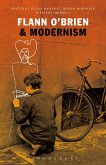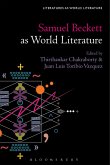Informative, broad-ranging, this title sheds new light on the life and literary art of one of the last century's most celebrated authors.
The first volume to be authorized by the Graham Greene Birthplace Trust, "Dangerous Edges of Graham Greene" brings together writers, journalists and scholars to investigate as well as to assess Greene's prolific oeuvre and intense personal interests.
Here the reader may explore everything from Greene's Vienna at the time of the filming of "The Third Man" to his sometimes fraught relationship with Evelyn Waugh, from Greene's unconventional fictional treatment of women to his "believing skepticism".
While Greene often informed friends that "a ruling passion gives to a shelf of novels the unity of a system", critics of his literary art have found it extraordinarily difficult to define the content of this "ruling passion".
Perhaps this is because Greene's own character seems so paradoxical, ironic even.
Moreover, in believing that sin contains within itself the seeds of saintliness, he consistently loiters on what Robert Browning calls "the dangerous edge of things". In exploring this "dangerous edge", this book covers the full breadth of Greene's life and literary career.
The first volume to be authorized by the Graham Greene Birthplace Trust, "Dangerous Edges of Graham Greene" brings together writers, journalists and scholars to investigate as well as to assess Greene's prolific oeuvre and intense personal interests.
Here the reader may explore everything from Greene's Vienna at the time of the filming of "The Third Man" to his sometimes fraught relationship with Evelyn Waugh, from Greene's unconventional fictional treatment of women to his "believing skepticism".
While Greene often informed friends that "a ruling passion gives to a shelf of novels the unity of a system", critics of his literary art have found it extraordinarily difficult to define the content of this "ruling passion".
Perhaps this is because Greene's own character seems so paradoxical, ironic even.
Moreover, in believing that sin contains within itself the seeds of saintliness, he consistently loiters on what Robert Browning calls "the dangerous edge of things". In exploring this "dangerous edge", this book covers the full breadth of Greene's life and literary career.









